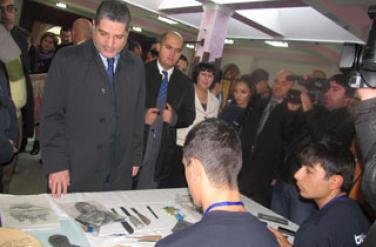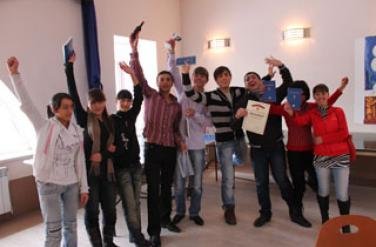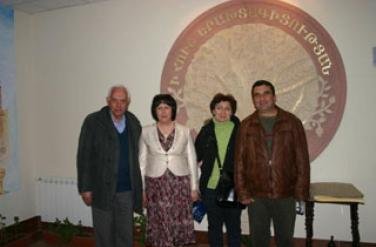2203-Computer maintenance-computer operator
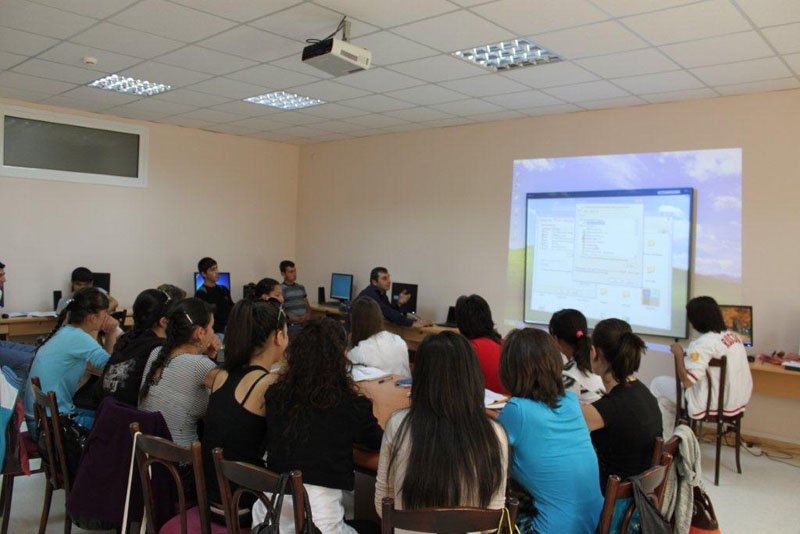
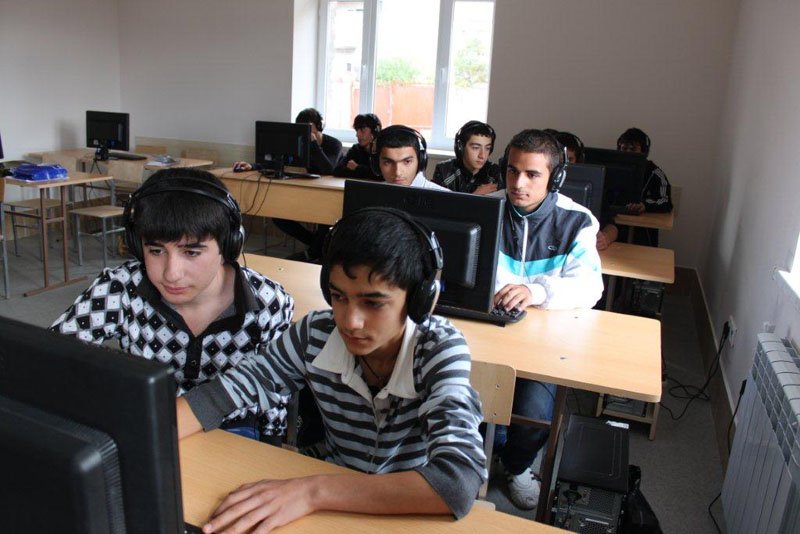
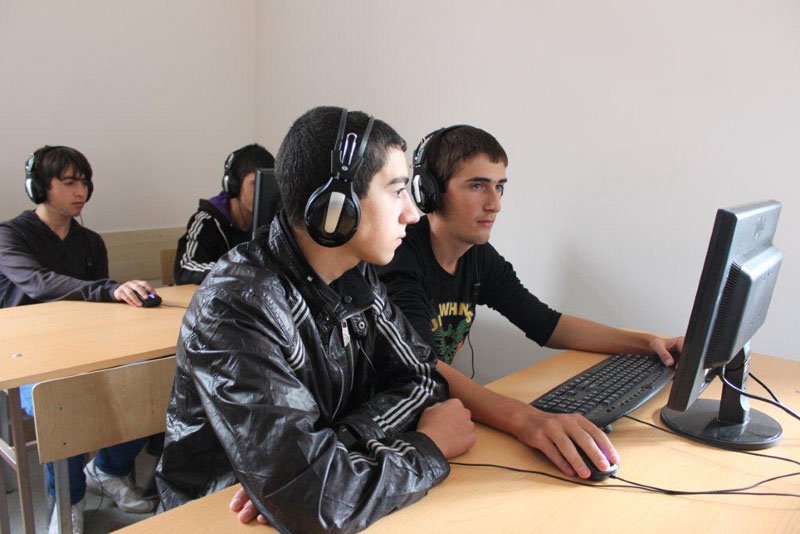
Nowdays Information technologies(IT) are used in all spheres and have a great demand in labor market.
Preliminary vocational (handicraft) education <2203- Computer maintenance> specialty for the qualification of basic educational program is available.
- On the basis of secondary/full/compulsory education with the duration of one year.
- On the basis of essential compulsory education in case of being combined with high school curriculum with the duration of three years.
The educational process is organized in the form of theoretical and practical training.
Teaching is free of charge and all the learning students get state scholarship.
For satisfying economic and labor market requirements, students receive professional and comprehensive education which is implemented by highly skilled professionals in modern equipped auditoriums.
Industrial trainings are carried out in the computer auditoriums of the college.
Practical lessons and production practices are conducted in corresponding Institutions.
Visits to TV studios, newspaper editorial offices, advertising agencies and centers of information technologies are frequently organized.
Training is realized in classrooms, laboratories, auditoriums equipped with computers and modern technical means. Very often the educational process in different subjects are organized by electronic textbooks.
During the educational years parallel with the general subjects, students also study the following specialized modules:
Communication technologies.
The student develops and strengthens communication skills as well as acquires self-confidence during his professional activity and his personal life.
Security and First Aid.
The student creates the security rules for the protection of working place and develops abilities of implementing measures and first aid.
Information and Computer Technologies.
The student is given a general knowledge of computer structure, computer access security rules and about the hygienic norms. Apart from this, the student develops skills of working with files and folders.
Operating systems.
The student is given a general knowledge of the role of operating system (OS),importance and its types. Students develop operating system's standard programs use, make simple settings, software installation of applied program and removal skills.
Text document cultivation technology.
The module learner gets a deep knowledge and stable skills about the phases of information technologies in its embraced areas. The student also forms skills in information processing, storage and transferring.
Presentation making editor.
The student gets knowledge of presentation making editor. Module allows students to apply theoretical knowledge in practice through the presentation training editor and prepare slides.
Electronic Spreadsheet program.
The module learner can prepare electronic spreadsheets, input different types of data, carry out arithmetic operations with numerical values by means of computer technologies. The student will use all his/her acquired knowledge of various software systems for development database systems.
Vector graphic systems.
The student develops capacities in working with vector graphic systems. They can implement various decorative works such as declarations, newsletters, visit cards, also making advertising posters, creating complex compositions, etc.
Point graphic.
The student is given knowledge about point graphic systems' basic principles and characteristic features. The student acquires the skills in carrying out various works by means of point graphic system such as declarations, newsletters, visit cards, making advertising posters, creating graphic compositions and other decorative works.
Basics of Information Security.
The student is given a general knowledge about the role and importance of information, information storage, protection rules. The student develops the skills at performing complex functions which is connected with information security.
Computer Networking.
The student is given a general knowledge of the role and importance of computer networks. Student develops skills at using network resources and making simple commands.
Telecommunication Technology and Equipment.
The learner is given certain knowledge about telecommunication technologies and equipments. By means of telecommunication technologies the learner develops searching, receiving and sending skills as well as skills in carrying out simple commands and installations.
Accessory equipments of computer structure.
The student is given basic knowledge about computer structure and accessory equipments.
Principles of Database Administration System.
The student formed abilities of carrying out administration process with computer. Student is also developing capacities of implementing administration process by means of computer and telecommunication technologies.
In addition to these modules the learner also studies the humanitarian and social economic, mathematical and general natural sciences, which contribute to overall student development.
The educational mission is to prepare highly qualified, market relevant computer operators.
Computer operator's qualification is awarded to graduates in final attestation. The graduates receive a diploma and a certification of secondary, full education. On general principles the students may continue studies in higher educational institutions.
The computer operator may:
- preserve and digitize documents at the appropriate place,
- send documents by electronic means (mail, fax),
- implement information searching in the Internet,
- carry out computer installation,
- exploit any computer program,
- Carry out decorations,
- create and operate computer networks,
- carry out photo design.

